Record Bundesliga champions Bayern Munich have announced that they will part ways with manager Thomas Tuchel at the end of this season, having only appointed him just over a year ago. Was that the right decision? We take a look at the stats.
By Neel Shelat
At the 12th time of asking, Bayern Munich’s Bundesliga winning streak finally looks set to end. At the time of writing, they are eight points behind an incredible Bayer Leverkusen side who have only dropped eight points so far this season.
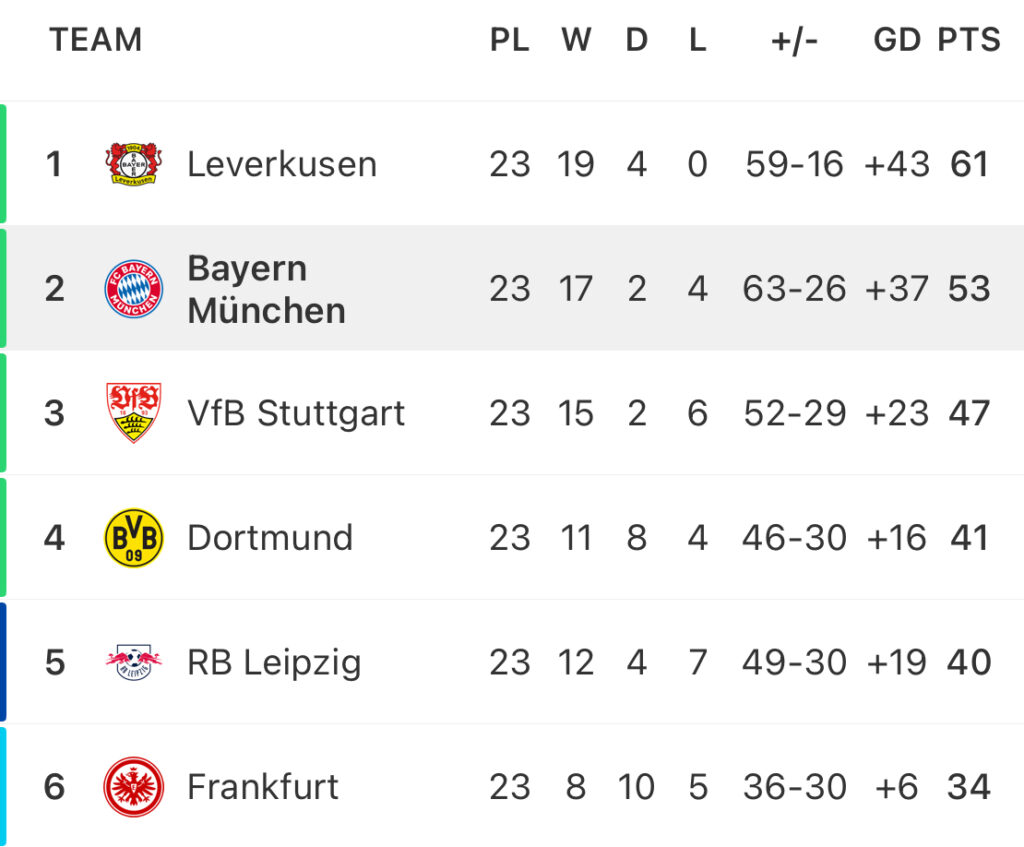
Their title defence really has unravelled in recent weeks. Back-to-back Bundesliga losses against the leaders and then at relegation-battlers Bochum have seen them fall closer to third than first, and a defeat to Lazio in the first leg of their UEFA Champions League Round of 16 tie has put them at serious risk of enduring a rare trophy-less season.
All things considered, the need for change becomes apparent at a club that is so used to success that simply winning silverware has become the bare minimum. The question, however, is whether they are right to change managers – and more importantly, whether the timing they have agreed upon is right.
The Numbers
First of all, it is worth digging into some statistics from Tuchel’s tenure at Bayern as well as this season in particular.
The 50-year-old German tactician has averaged at least 2 points per game in all of his jobs after leaving Mainz, but the fact that his average at Bayern is lower than what he managed at Borussia Dortmund and Chelsea will not go down well with Die Roten.
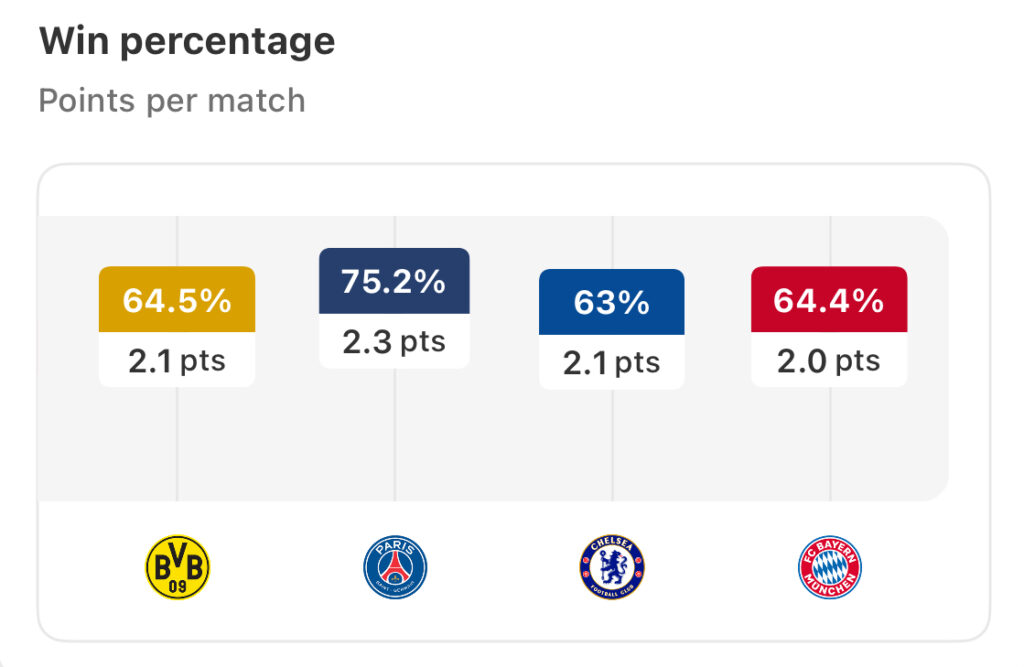
More damning, though, is the fact that he has lost almost a quarter of his 45 matches in charge of the club. These include crucial knockout ties such as last season’s Champions League quarter-final at the Etihad Stadium that ended 3-0, the aforementioned Round of 16 first leg in Italy, and most shockingly of all, a DFB Pokal second round fixture against third-tier Saarbrücken earlier this season.
Even so, Tuchel will leave Bayern with his record of winning silverware at every club after Mainz intact having lifted last season’s Bundesliga. Generally speaking, his stints at Dortmund, PSG, and Chelsea were successful, yet he did not leave any of those clubs on the best of terms. The manner of those departures have called into question his character as a head coach, which will surely not be painted in a better light after he leaves Säbener Straße.
From a purely performance-focused point of view, though, the stats this season do not look too terrible. Bayern are just a touch off Leverkusen by most basic metrics, and in fact outshine them when it comes to underlying numbers.
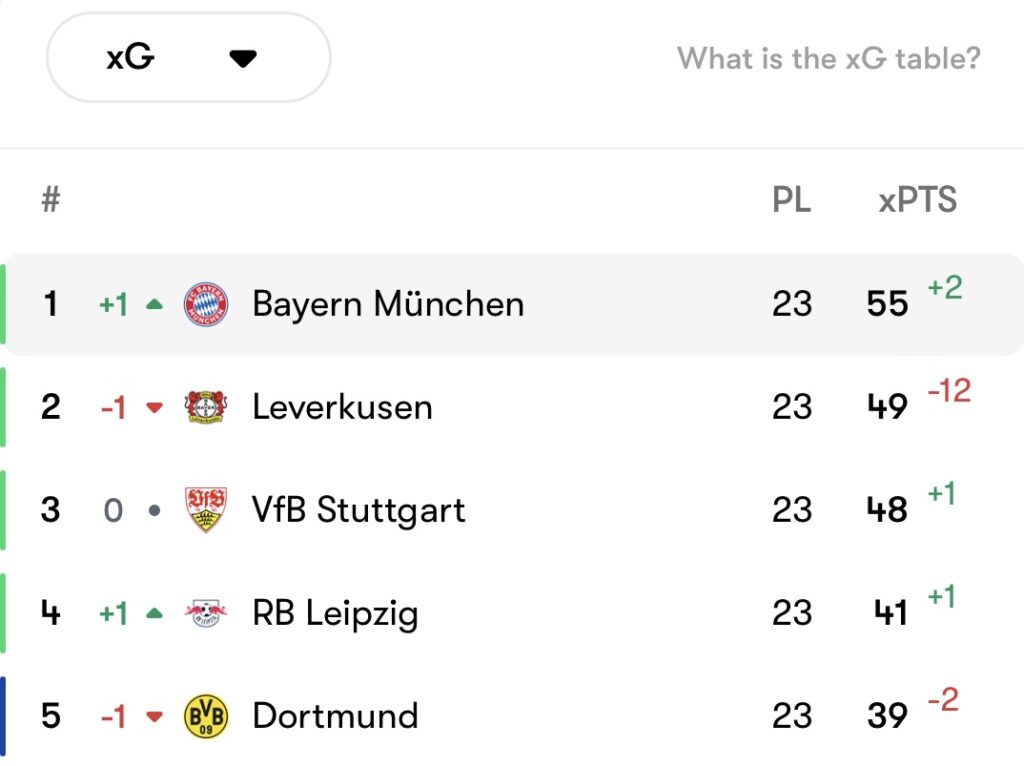
However, it is crucial to understand these numbers in context. For one, Leverkusen appear to be overperforming by a greater margin than they actually are because they have spent a great deal of time leading matches, therefore not needing to worry about chance creation so much. Bayern, on the other hand, have spent more time in a losing game state than a winning game state. In these cases, their underlying numbers get beefed up as they go gung-ho in search of a result while their opponents commit everything to defending deep, but this does not mean that Bayern Munich have truly performed better than Bayer Leverkusen this season.
Tactical Issues
This leads us to the real heart of the problem – Bayern’s tactical issues this season.
Especially in possession, Die Roten have been a shell of their usual selves with the way they have attempted to control matches and attack opponents. Their midfield department has been particularly off it, as they have struggled to control matches and have been quite sloppy in the way they have conceded needless turnovers.
Tuchel has mostly used a 4-2-3-1 system, but that does not really matter. The issue is not so much structural as it is about the personnel at his disposal. Since the summer, the ex-Dortmund head coach has been calling for the signing of an out-and-out defensive midfielder, but he never got one. There were a couple of failed attempts with the most notable one being Fulham’s João Palhinha, but at the end of the day, Tuchel was left with these options in the middle of the park
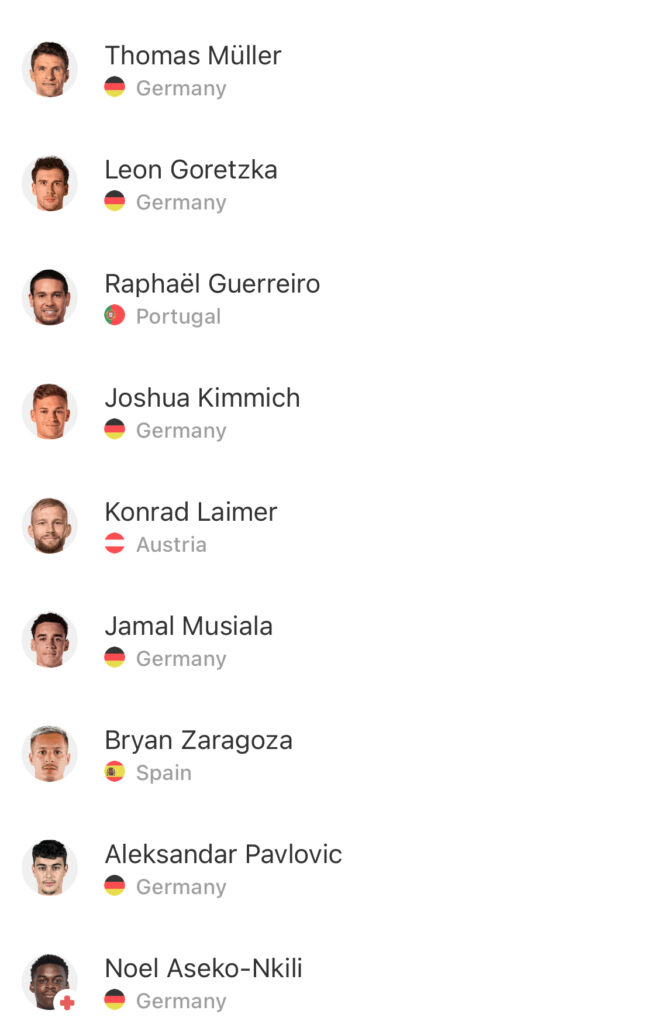
It is quite easy to see the problem here. While the likes of Joshua Kimmich, Leon Goretzka, Konrad Laimer and young Aleksandar Pavlović are capable of operating in the midfield double pivot of the 4-2-3-1 formation, all of them are players who would do better in a freer role and none can be described as anchors in midfield. In a nutshell, this explains the aforementioned issues Bayern have faced.
At the same time, Tuchel cannot be completely absolved of blame. Yes, he was dealt a tough hand from a tactical perspective, but he still had top-class players at his disposal who could be made to do a lot better. Instead of accepting a relative lack of control in midfield and playing a more free attack-minded style that could get the best out of Bayern’s star-studded front line, he seemingly tried to make his players as risk-averse as possible. As a result, Bayern have often looked slow and stodgy at when the game is level, and then have been forced to go all-out if they concede first.
By far the worst of Tuchel’s tactical mistakes came in the crunch fixture against Bayer Leverkusen, where he switched to a back-three in a bid to try and match their opponents’ formation. Lacking the practice and freedom to successfully execute a Leverkusen-like playing style, the defending champions found themselves outclassed on all fronts.
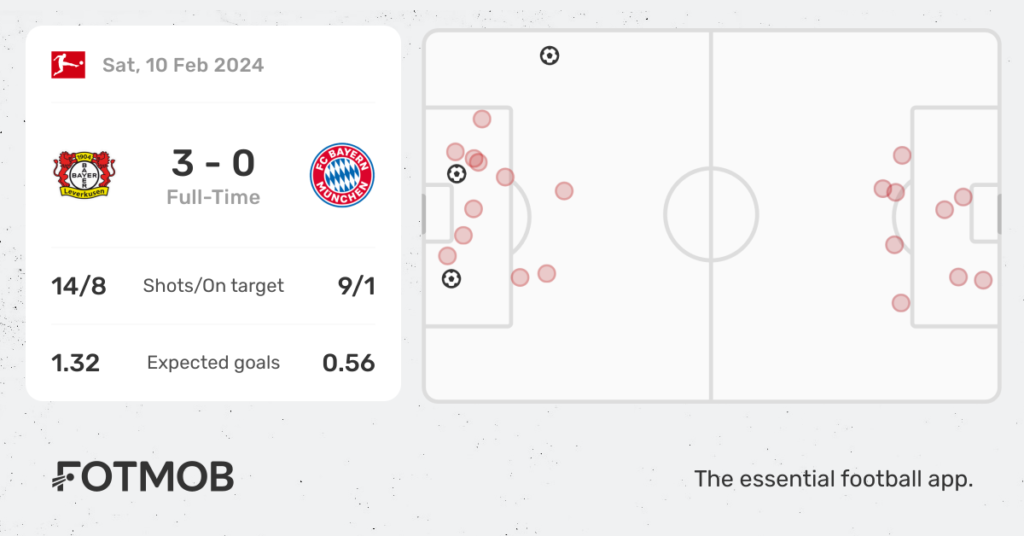
Verdict
Quite clearly, Bayern Munich were not heading in the right direction under Tuchel this season, so the decision to part ways absolutely makes sense.
Indeed, the decision to even appoint him in the first place was quite questionable. To this day, many believe Julian Nagelsmann’s sacking was unnecessary as he was merely enduring a blip in terms of results while continuing to lead the team in the right direction both tactically and performance-wise. Reports at the time suggested that the club wanted to act quickly once Tuchel became available having missed out on him previously, but that does not seem a clever decision-making strategy.
After their near miss in the title race last season, Bayern Munich CEO Oliver Kahn and sporting director Hasan Salihamidžić were quite literally fired amidst the title celebrations in a move that underlined the club’s commitment to sustaining success. However, neither of them were adequately replaced, leaving Bayern short in the decision-making department this season and consequently causing issues such as the inability to sign a number six.
So, Bayern might want to sort out their boardroom before hiring their next head coach. If that is indeed what they are planning to do, then keeping Tuchel on until the end of the season makes perfect sense. Although his team have had issues, they have not been absolutely terrible and should respectably see out the rest of the season, which will give the club time to hire new decision-makers and suitably search for the ex-Mainz manager’s replacement rather than making another mid-season mistake.
Indeed, there do not appear to be too many clear candidates on the market right now. Hansi Flick reportedly does not want to return to Bayern and favours a move to Barcelona, so the best free options right now are the likes of Ole Gunnar Solskjær and Zinedine Zidane. In the summer, though, Bayern will have the time and opportunity to go around the Bundesliga and approach candidates like Xabi Alonso and Sebastian Hoeneß.
Thomas Tuchel’s tenure at Bayern Munich seemed doomed to fail for almost its entirety, so the club must learn a lesson and avoid making such mistakes again.
(Images from IMAGO)
You can follow every Bundesliga game live with FotMob — featuring deep stats coverage including shot maps, xG, and player ratings. Download the free app here.
